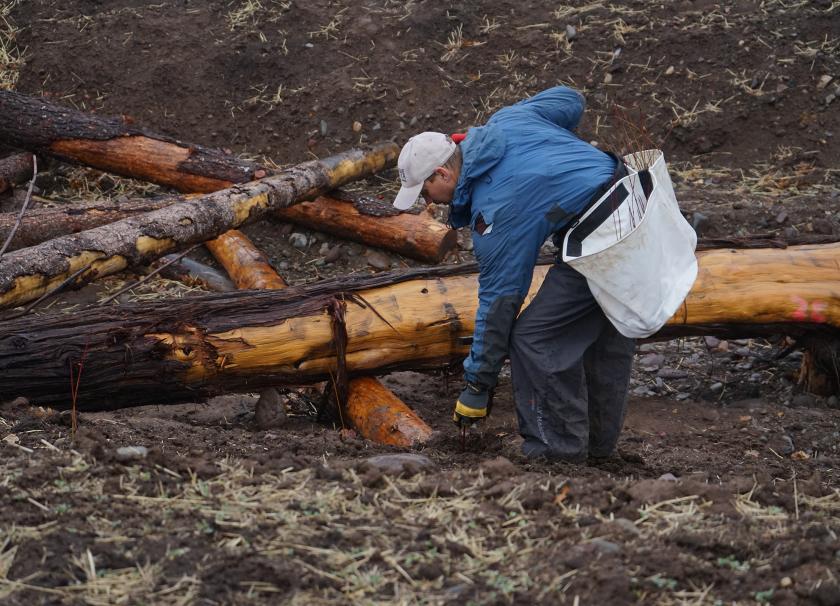
August Change for Good Partner: Rogue River Watershed Council
At Ashland Food Co-op, we are dedicated to fostering a vibrant and sustainable community. Each month, our Change for Good program partners with a local organization to support their mission and amplify their impact. For August, we are thrilled to announce our partnership with the Rogue River Watershed Council (RRWC).
Who is the Rogue River Watershed Council?
The Rogue River Watershed Council is committed to enhancing the resilience of the Rogue River watersheds through ecological restoration and community engagement. Their mission is to protect and restore the natural ecosystems of the Rogue River, ensuring that both the environment and local communities can thrive amidst the challenges of an ever-changing world.
Current and Upcoming Projects
RRWC is actively involved in several exciting projects aimed at improving water quality, restoring habitats, and ensuring sustainable resource management. Here are a few key initiatives:
Bear Creek River Mile 19 Active construction is underway along the Greenway between Lynn Newbry Park and Wranglers Arena in Talent. This project, which continues until mid-September, focuses on protecting infrastructure, safeguarding drinking water, and restoring fish and wildlife habitats. To learn more about this project, including radio interviews, videos, and greenway accessibility notices, visit the RRWC website.
Little Butte Creek River Mile 16.7 RRWC is collaborating with a private landowner to enhance water quality, improve fish passage, and restore fish and wildlife habitats. Key actions include the placement of large wood structures, recovery of the native riparian forest, and upgrades to irrigation infrastructure. A significant instream action this summer involves installing an irrigation system that eliminates the need for push-up dams, which have historically impeded fish passage and disrupted Chinook Salmon spawning.
Rogue Drinking Water Partnership In addition to their restoration projects, RRWC is a key partner in the Rogue Drinking Water Partnership, an initiative that brings together local drinking water providers and organizations to protect drinking and source water. This past May, during National Drinking Water Week, RRWC partnered with local coffee shops to distribute coffee sleeves highlighting the partnership’s work, raising awareness about the importance of protecting our water resources.
How You Can Support RRWC
As part of our Change for Good program, every time you shop at Ashland Food Co-op this August, you have the opportunity to round up your purchase to the nearest dollar, with the extra amount going directly to support RRWC’s vital work. Your contributions will help fund their ongoing and future projects, ensuring the health and sustainability of the Rogue River watersheds for generations to come.
To learn more about the Rogue River Watershed Council, their projects, and how you can get involved, visit their website.
Together, we can make a positive impact on our environment and community. Thank you for supporting Ashland Food Co-op and our Change for Good partner, Rogue River Watershed Council!
More Co-op News
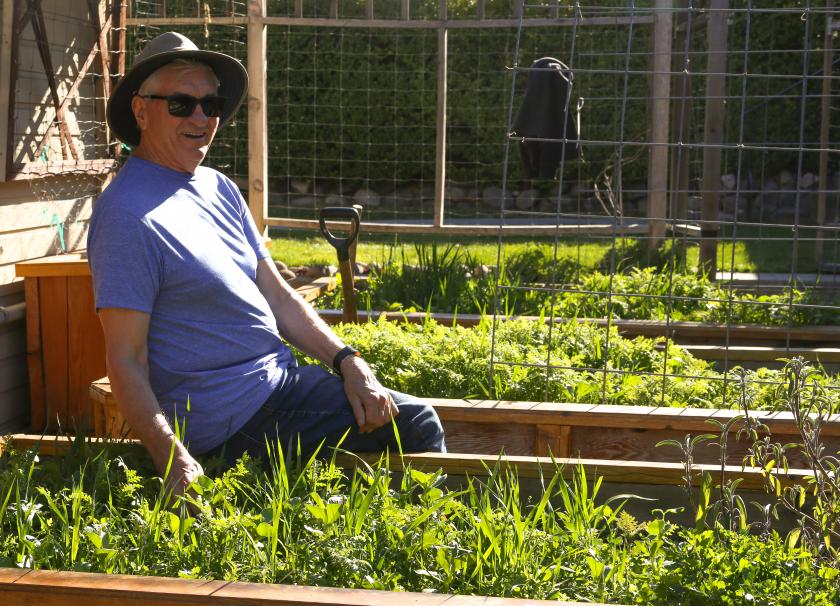
Henry in the Garden: The Pollinator Plan
By Henry Herting, Co-op garden volunteer
It's that fun time of the year when we get to plan our gardens. This year since our pollinators are taking such a hard hit, we are planning a pollinator garden.
Some plants that are considered good for pollinators are not so good fo the gardeners. They are invasive; they are weeds. Nobody likes weeds in their garden - who likes getting down on their knee pads and clawing at deep-rooted weeds growing in places where you don't want them?

Rogue To Go at the Co-op
We are excited to announce the official launch of Rogue To Go at the Ashland Food Co-op!
Rogue To Go is a reusable container pilot program. The pilot connects five participating restaurants by offering a reusable container that can be used for meals to-go and help eliminate single-use boxes. These O2GO containers are made locally in Bend, Oregon by OZZI. The bright green containers are 100% recyclable through a specialty recycler - truly zero waste!
How can you start using Rogue To Go? Check out the steps below and follow along with a walk-through video.
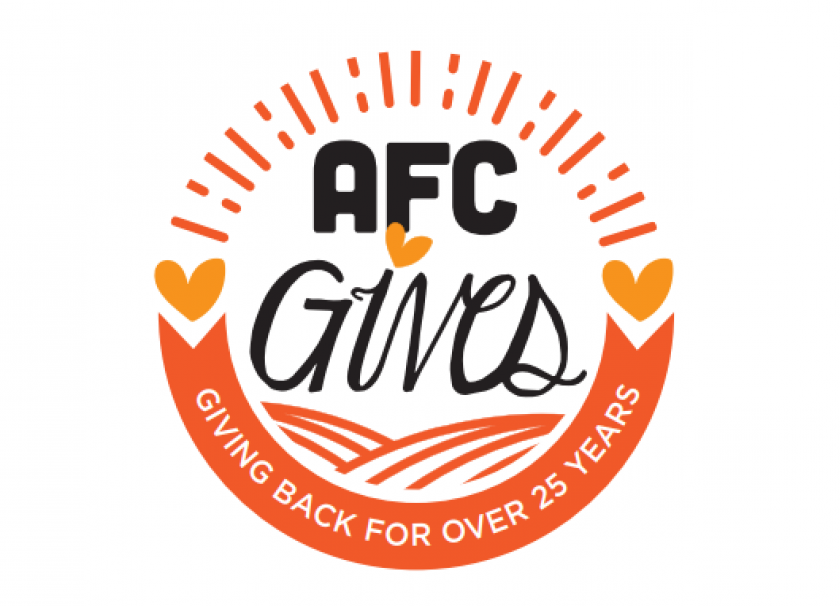
Apply for an AFC Gives community grant
For over 25 years, the Ashland Food Co-op has been re-investing in the local community by awarding grants to non-profit organizations doing important work in the Rogue Valley. Putting the seventh cooperative principle, "concern for community," into action, over $30,000 was donated in 2019 - and in 2020, there are even more opportunities for non-profits.
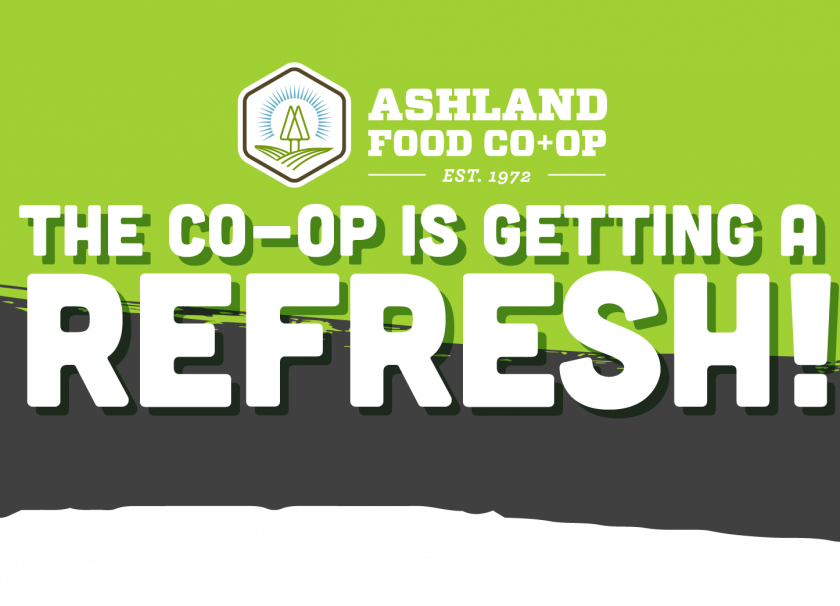
The Co-op is getting a refresh
We are giving our store a much-needed fresh coat of paint. We think you'll enjoy the changes!
When
The painting team will begin our project on February 5th, 2020 with a start time of 9pm.
Where
The entire retail store, deli serving area and interior seating area will receive a fresh new coat of paint.
Timeline
If all goes as planned, our painting project should be finished by February 20.
Will Store Hours Change?
No. We will be painting from 9pm to 5am.
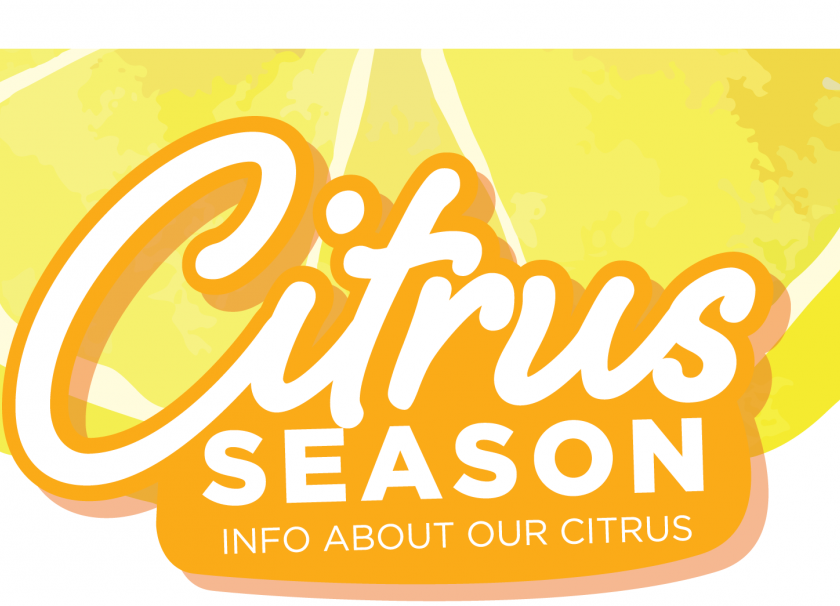
Explore citrus!
Looking to explore some new citrus varieties? Know more before you go! Check out the many types of sweet, sour and somewhere in between that you can enjoy at the Co-op! (Availability may vary due to seasonality.)
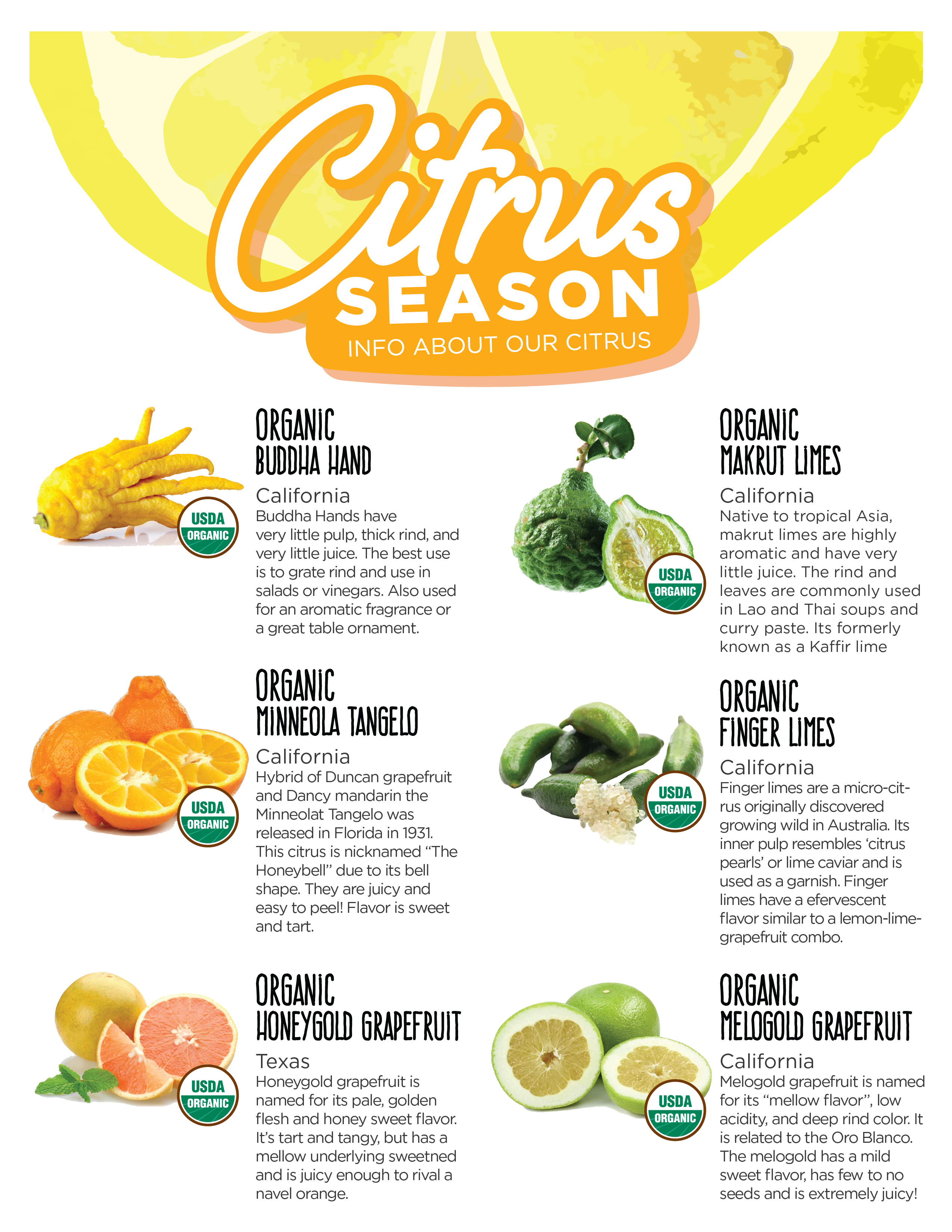
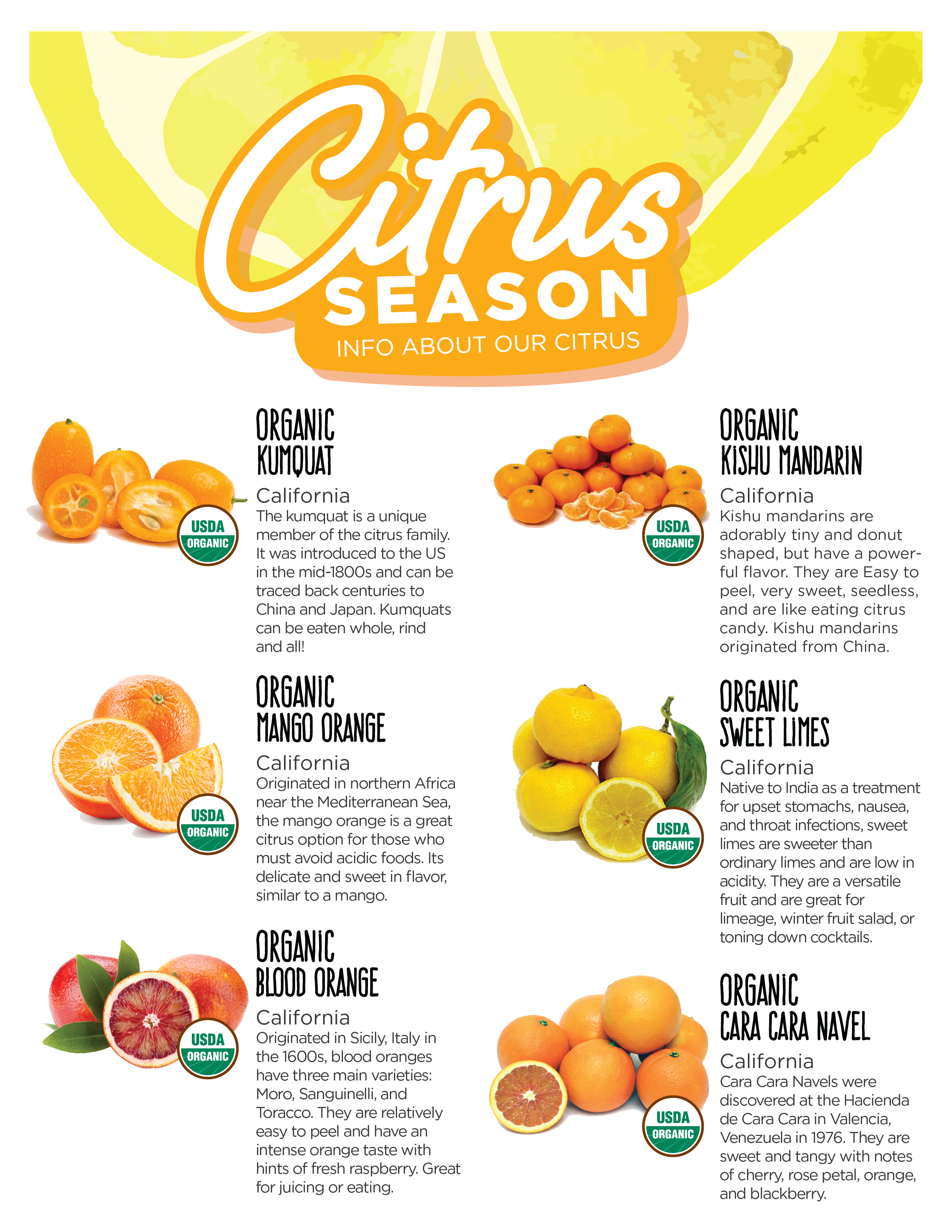
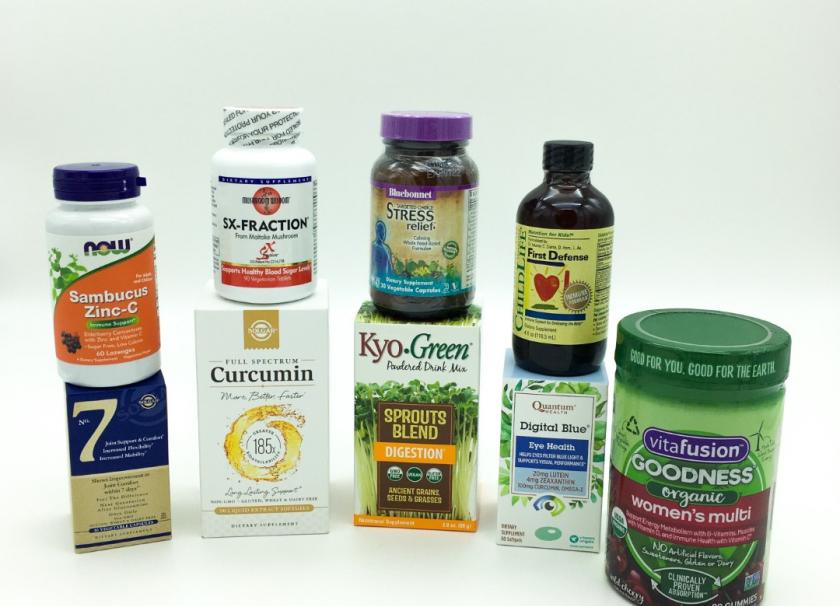
Taste for Life winter wellness giveaway
It's a month of giveaways from Taste for Life!
Giveaway #1 has finished up - so it's time for #2! This giveaway runs 1/27-2/2, so sign up below.
This package includes: NOW's Sabucus Zinc-C lozenges, Mushroom Wisdom's SX-Fraction, Bluebonnet's Stress Release formula, ChildLife's First Defense immune formula, Vitafusion's Organic Women's Multi vitamin, Quantum Health's Eye Health supplement, Kyo-Green Sprouts Blend digestion supplement, Solgar's full spectrum Curcumin supplement, and Solgar's No. 7 joint comfort supplement.

Rogue Co-ops College Scholarship
As part of the Rogue Co-ops, a group of Rogue Valley cooperative businesses that includes Ashland Food Co-op, Grange Co-op, Medford Food Co-op, and Rogue Credit Union, we're excited to offer a scholarship opportunity to local high school students planning on attending college.
The Rogue Co-ops have collectively funded a $2,000 scholarship (and Grange Co-op offers an additional eight $1,500 scholarships) for students (in public, private or home school settings) who meet the following requirements:
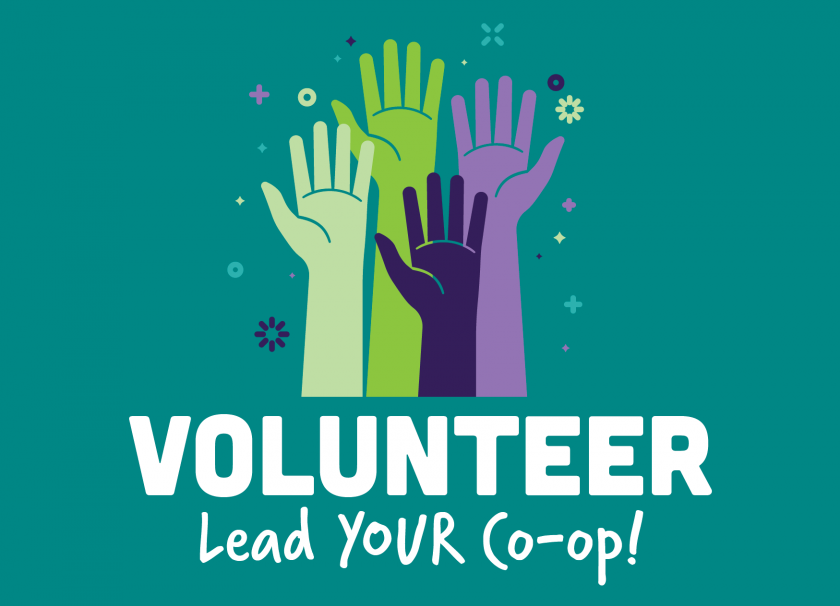
Become an Owner-Volunteer with the AFC Board
The AFC Board of Directors is looking for owner-volunteers for three board committees: the Owner Engagement Committee (OEC), Board Development Committee (BDC), and AFC Gives Committee.
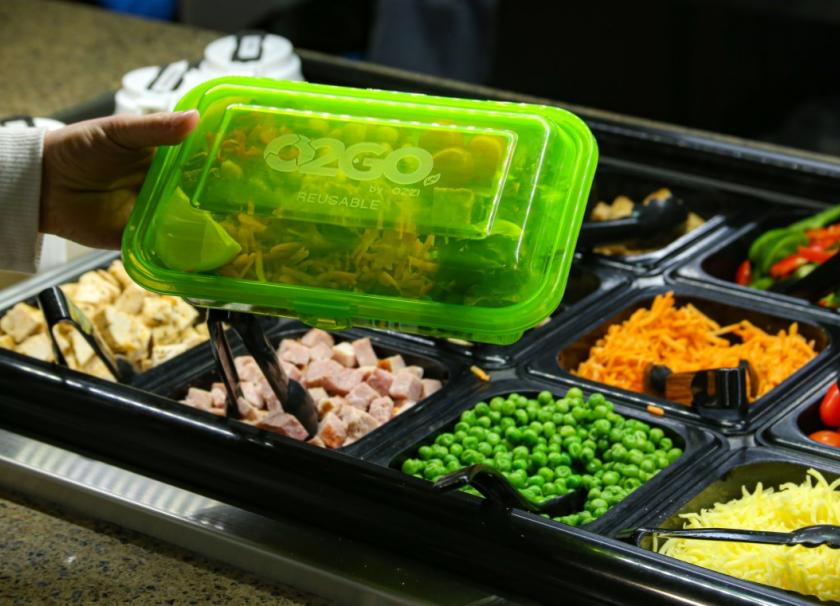
Sustainability Update: Building on a Strong Foundation
Sustainability Update
Our team has been working on many different projects throughout the year, taking great steps to fulfill our four sustainability goals. Our four goals to achieve by 2030 are: carbon neutrality, zero waste, eliminating toxic chemicals, and being a leader in our sustainable community. We look forward to our sustainable success in the upcoming decade!
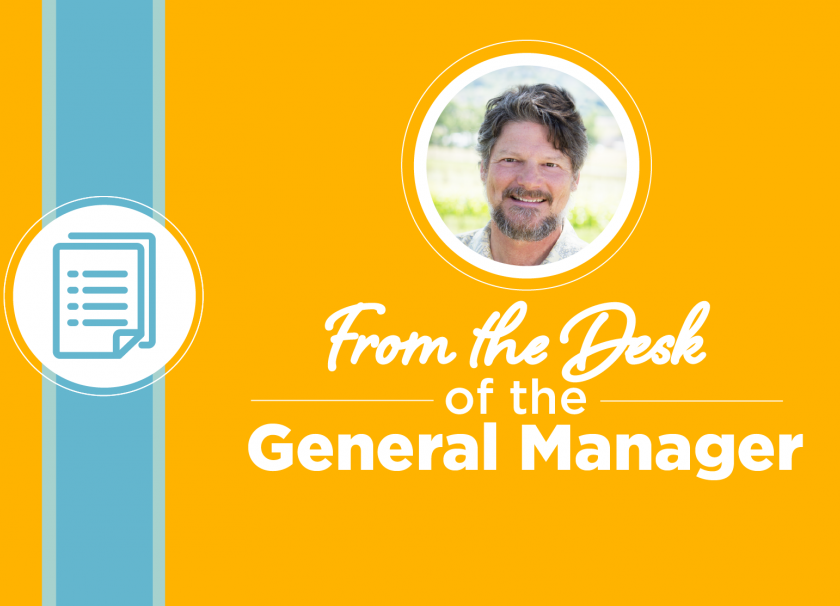
2020: A vision for the future through Co-ops and local food
As the 2010s come to a close, the “20/20” eyesight analogy couldn’t be more appropriate for the new decade. With our eye on the future, there’s clearly a sense of urgency and awareness of the unique times we’re living in: a changing climate, increases in costs of living, and the shared pressures of a globalized world.
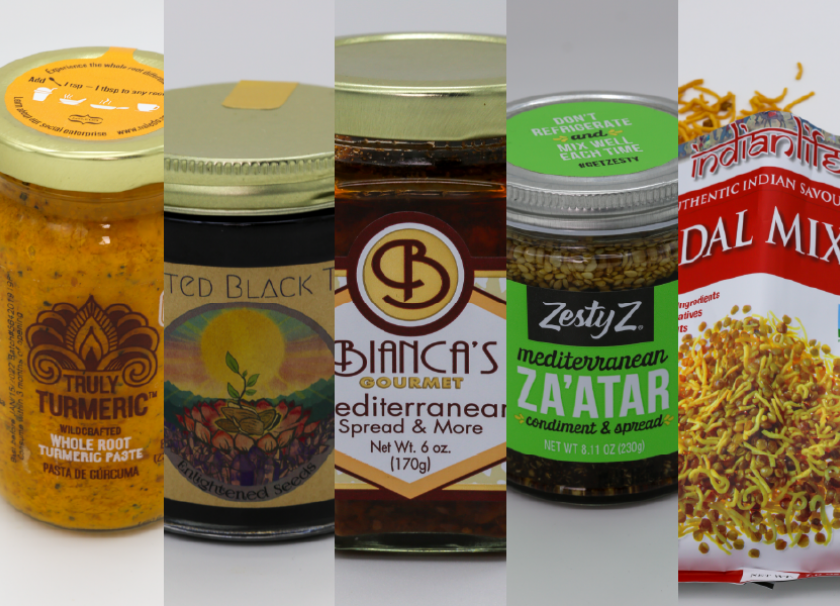
5 Items to Try: Spreads, Condiments & Snacks
It's fun trying new things! Here are five items you can find at the Co-op with a distinctly international flavor. Whether you're spreading them on some bread or naan, mixing up a salad dressing, or just want something salty and crunchy to snack on, try these out next time you want to elevate your dishes.
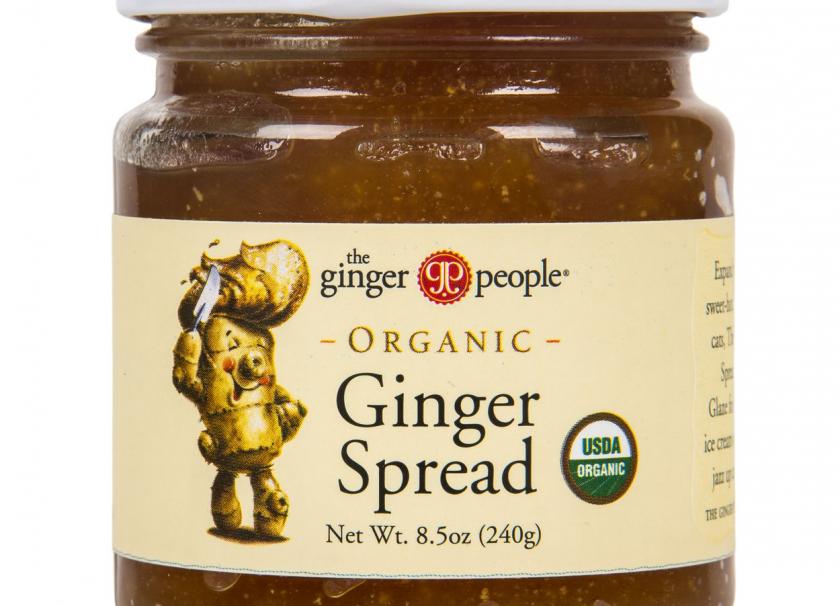
10 Ways to Enjoy: Ginger Spread
Sometimes you might come across a product at the Co-op and ask, "That looks good, but how in the heck can I use it in my cooking?" To answer that question, we picked this Ginger Spread made by The Ginger People (famous for their Gin-Gin candies). Grab a jar and try some of these unique applications in your own kitchen - or get inspired to utilize it in another way.
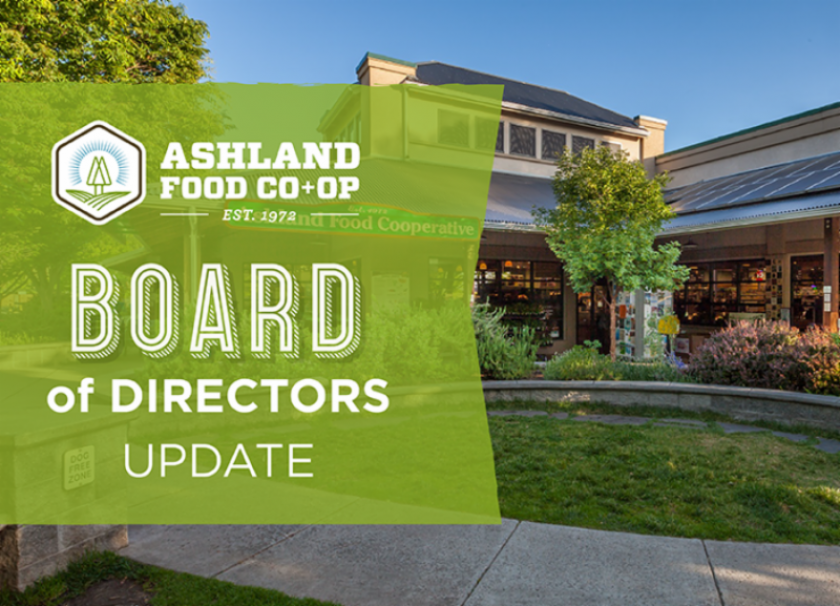
Meet Your Board: Melina Barker
Hello, Co-op members! My name is Melina Barker, and I joined the AFC Board of Directors this July. Since then, I have been busy learning about all the work the previous members have done to craft strategic goals to support the success of the AFC.
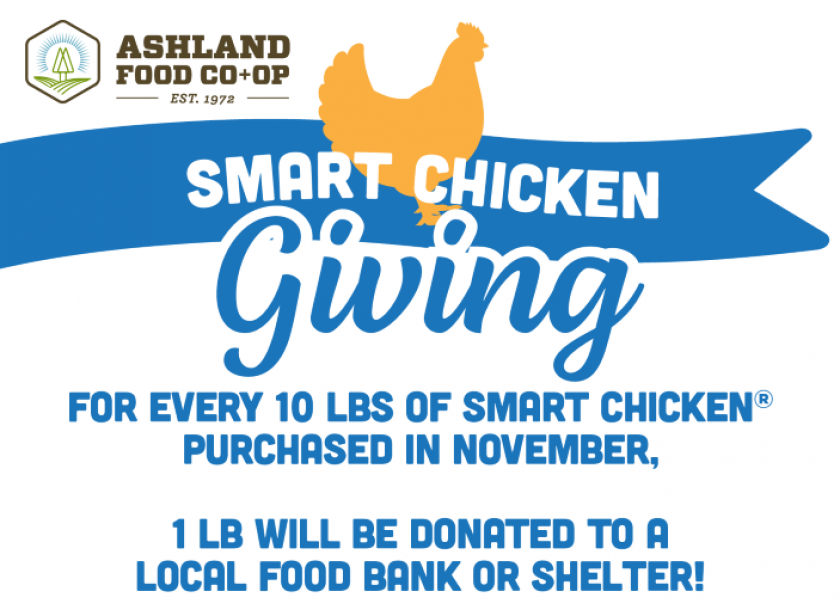
Smart Chicken® Holiday Giving in 2019
During the month of November, Co-op shoppers can nourish their own families and help fight hunger in the Rogue Valley.
Over the years, Smart Chicken® and Ashland Food Co-op have teamed up to donate thousands of pounds of chicken to ACCESS. Smart Chicken® will once again donate Smart Chicken® products based on the total volume that shoppers purchase at Ashland Food Co-op to ACCESS.
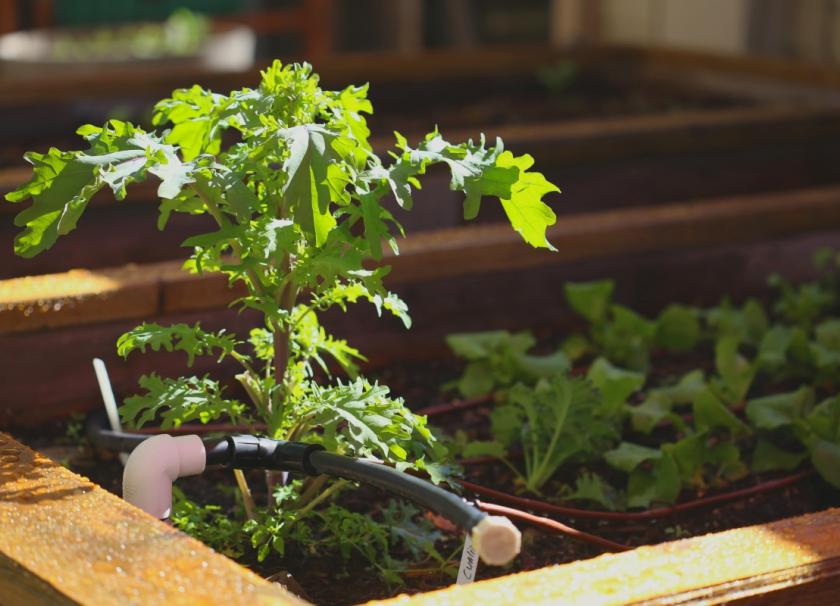
Henry in the Garden: Already Preparing for the Spring
The bane of all gardeners is powdery mildew - that white substance that collects both on the tops and bottoms of the leaves of your healthiest vegetable plants. Cucumbers and zucchini seem to be more easily affected by this scourge than many others.
